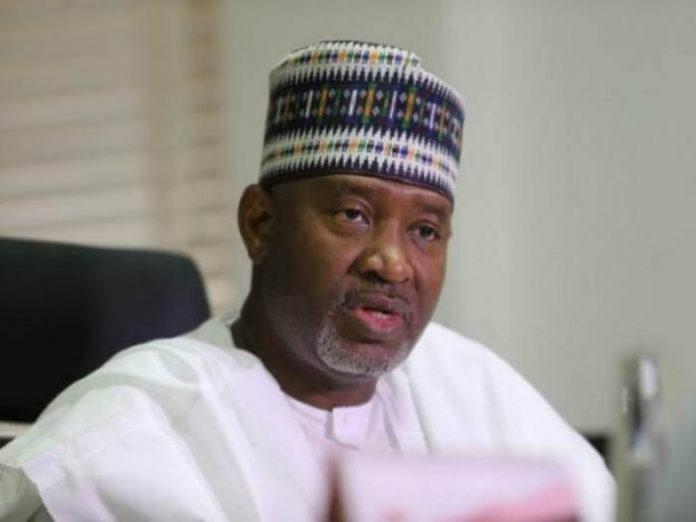With 10 scheduled domestic airlines, 24 non-scheduled carriers, and about 40 prospective airlines, the Nigerian Aviation sector is facing an acute shortage of Inspectors, Daily Trust can report.
While the Nigerian Civil Aviation Authority (NCAA) Director-General, Capt. Musa Nuhu has consistently decried the impact of the shortage on the agency to carry out its surveillance and enforcement activities in the sector, findings by our correspondent revealed that the situation has got worse with the authority having between 80 to 100 Inspectors serving both the existing carriers and the upcoming ones.
The development, it was learnt, was also responsible for the delay in the issuance of an Air Operator’s Certificate (AOC) for some of the incoming airlines.
A highly placed source in the NCAA told Daily Trust that a case in point was the delay in the issuance of AOC to Green Africa Airways, a new entrant into the airline subsector.
While the airline had advertised to commence flight in June this year and even sold out tickets, the NCAA couldn’t complete the AOC process until August when the airline finally got the certificate which is the major requirement for any airline to commence operations.
Daily Trust reports that the AOC process takes five stages and at critical stages of the certification especially during demonstration flights when the aspiring air carrier is expected to conduct a test flight of 50 hours without passengers, the Inspectors are needed.
But with the shortage, it then means many of the aspiring airlines would have to wait longer than expected to complete the registration process as the same set of Inspectors also serves existing airlines and when issues arise, they are deployed to carry out airworthiness checks on their aircraft from time to time in addition to routine audit.
Our correspondent reports that the NCAA has different categories of Inspectors, including airworthiness Inspectors, Flight Operation Inspectors, Ground Operations Inspectors, Cabin Inspectors, Aerodrome Inspectors dealing with Airports, as well as Airspace Inspectors.
But there are only about 100 Airworthiness Inspectors which are the most critical providing services to both the existing and the incoming airlines and more than 200 aircraft combined to work with.
A source in the NCAA who spoke with our correspondent on the condition of anonymity said most of the 100 have retired but they were retained on an ad-hoc basis to help in training the younger ones.
The source said, “Yes there are about 80 to 100 Inspectors currently in Airworthiness that I know. The DG is right about the shortage, but don’t forget also that this is not peculiar to Nigeria. It is a global thing. You saw the Federal Aviation Administration (FAA) of the United State advertising for Inspectors. So the situation in Nigeria is not an isolated case.
“Ask the Director of Airworthiness Standard of the NCAA, he would tell you the Inspectors under him are overworked and that is the reality. But in other areas like flight operations, it is worse.
“The International Civil Aviation Organisation (ICAO) document will tell you, you need to have inspectors in sufficient numbers. But the number we have presently is not enough when you look at the volume of work in the NCAA. The industry is expanding, more airlines are coming, technology is changing and the way of doing things is changing.”
The NCAA DG, who spoke with aviation journalists recently, confirmed that the agency is facing a tough challenge over shortage of technical staff as the workload has improved significantly with more airports and more routes being opened.
He said most flight operations and airworthiness Inspectors who are aircraft pilots and engineers preferred to work for airlines where they get far better salaries than what the NCAA offers. However, Nuhu disclosed that the NCAA is working with the Ministry of Aviation to review the conditions of service of the NCAA technical staff.
He said, “Now I can travel from Asaba to Kano. I can travel to almost anywhere. I can go to Sokoto, I can go to Gombe, we have airports popping up all over the place, a lot of state governments are building airports.
“So, that has increased the span of activities and responsibilities of the NCAA as a regulator of the industry. Our surveillance programme has increased, it’s putting a lot of demands on us and workload has significantly increased. It is just going to get worse as time goes. The issue of technical staff is one of the biggest challenges we have.
“To attract the appropriate staff, train them and retrain them, it’s a bit difficult. Like Flight Operations Inspectors, these are airline pilots. Nobody is going to leave his job with an airline and come and earn maybe 20 or 30 percent of your salary. At the end of the day, what happens is retired pilots get to do the job for us. And I think we need to have a mixture of the young Inspectors and retired Inspectors. We need a mixture of both but it is very difficult for us to really attract the young guys because we cannot compete with what the industry is paying.”
Speaking on the development, aviation analyst, Capt. John Ojikutu said the situation has been the same for years, making it difficult for the NCAA to be more effective in terms of enforcing regulations.
He said, “This is not new; it is just one major reason why there is no efficient and effective enforcement of regulations and compliance to safety recommendations. I said that much at the AIB event recently in Abuja and one of the NCAA staff took me up but agreed that they were training some graduates as inspectors at the Obasanjo library in Abeokuta.
“That approach to me was absurd. Why training inspectors in a public library not in Zaria or with any credible operators like Aero that has been certified for MRO by the NCAA. Once I suggested that good hands from credible operators should be sent to the NCAA for a tour of duties of three to four years in NCAA to close the gaps instead of sending half-baked inspectors to professionals of 10 years’ experience on the field.
“The AIB was quick to realise that a few years ago, but not the NCAA that has over 20 airports, more than 20 airlines, and aircraft operators to audit, inspect and check annually both on oversight and compliance to safety, security and economic regulations.”

 Join Daily Trust WhatsApp Community For Quick Access To News and Happenings Around You.
Join Daily Trust WhatsApp Community For Quick Access To News and Happenings Around You.

